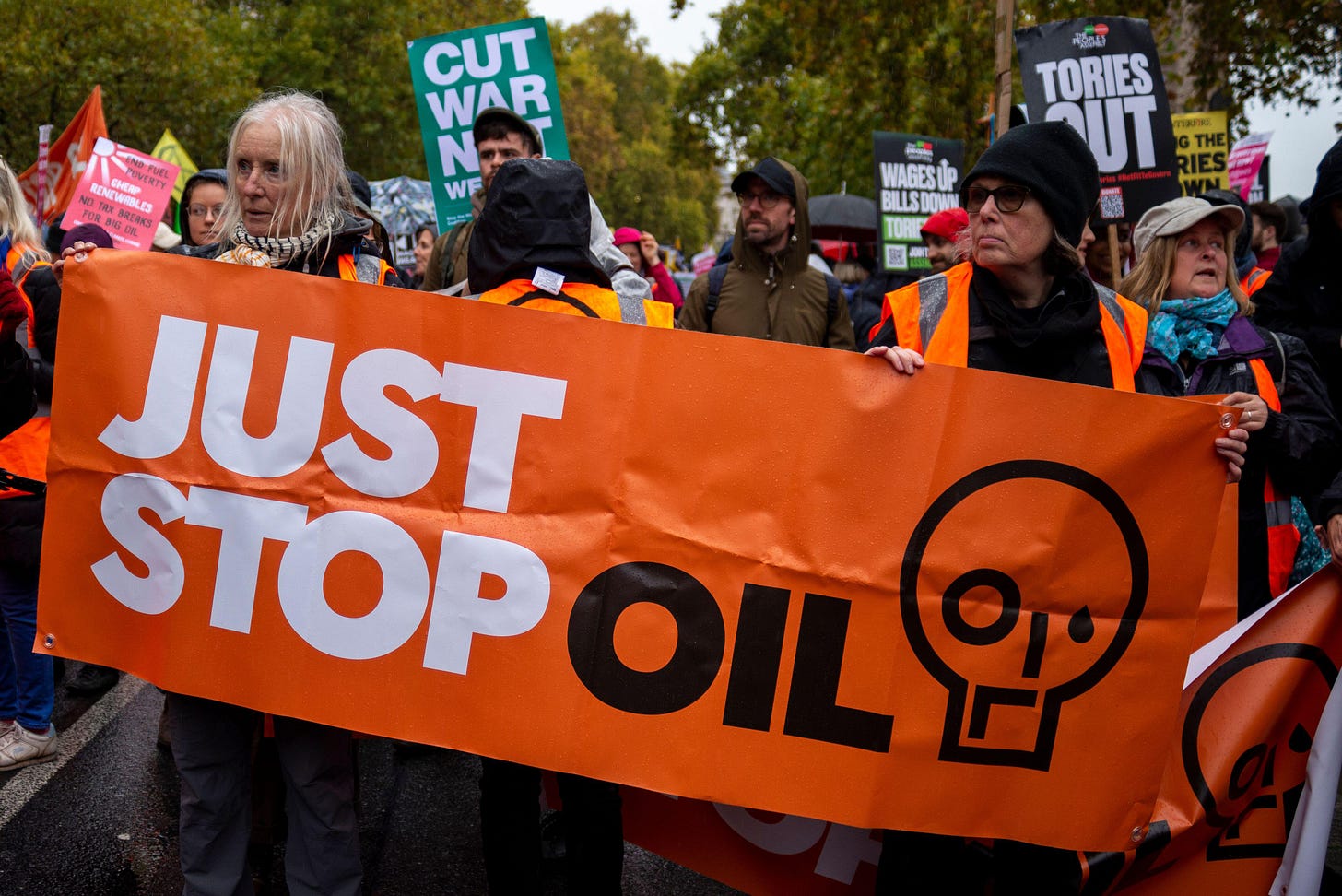RIP Just Stop Oil, you protested too much
Possibly even more than the disruption they cause, it is their double standards that have made these groups so hard to love.

The announcement by Just Stop Oil that it has, well, just stopped because it has achieved its aims will likely bemuse fellow eco warriors who thought the climate crisis was ongoing. The group, which became known for throwing soup at priceless art works and disrupting traffic, said it would cease high-profile protests after its chief demand, to end new oil and gas extraction, is now government policy.
No one seems to have told Greenpeace that its fight against Big Oil is won; as recently as last month its activists were staging a dramatic protest at Shell’s headquarters in London. But for Just Stop Oil, a baby in green sedition terms, launched only three years ago, enough is enough. “We’ve done what we set out to achieve…making us one of the most successful civil resistance campaigns in recent history”, they said.
Many may question the group’s confidence that the Labour government shares its uncompromising views on the North Sea sector. Although Ed Miliband, the Energy Secretary, did announce Labour would ban new drilling licences, a manifesto pledge, that does not prevent expansion at existing fields, and oil and gas production will continue to play an important role in Britain’s energy future, as he said himself.
His net zero agenda, meanwhile, has been rolled back as competing spending requirements, not least on defence, have seen priorities change. Since coming to power, Labour has shelved a number of green objectives, including a ban on new gas boilers, electric vehicle quotas, a flight tax and the transition to clean energy by 2030.
What’s more, the Chancellor, Rachel Reeves, backs a third runway at Heathrow, surely worthy of a protest of its own.
With Britain remaining about 75 per cent reliant on fossil-fuel energy, Just Stop Oil seems to have thrown in the towel prematurely.
But it admits its campaign tactics have taken their toll, a far more plausible explanation for its sudden withdrawal from eco militancy. The group’s mixture of retired professionals and privately educated youths were dismayed to discover their actions had consequences, not on others – stopping commuters or people en route to hospital appointments or funerals was par for the course – but on themselves.



